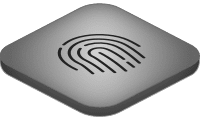I struggled to assimilate to civilian life after I returned home from serving three military deployments. I had plenty of experience, but I didn’t know how to explain my qualifications in terms an employer would understand. After all, how do you tell a potential employer that your skills hunting down IEDs in Afghanistan make you a great fit for an enterprise team?
But when I found cybersecurity, it was a perfect fit. There, I discovered the skills and training I acquired in the military naturally translated to the requirements of the cybersecurity industry. For instance, cybersecurity never stops—it’s a 24/7, 365 days-a-year operation—and it felt very similar to my “hours” in the military. Plus, cybersecurity relies on “defense-in-depth,” and it’s the same mindset of being on active duty and having to think of multiple ways to protect yourself. Cybersecurity gave me all the benefits of an office job and the thrills of defensive strategy without the danger of seeking out and surviving in a combat zone.
But most veterans don’t consider careers in tech. They often assume that their career options after service are limited to roles that seem most like the military, primarily in law enforcement.
To help bridge this gap, these are the three main things I suggest employers do to recruit veterans:
- Actively seek them out.
- Stop requiring a college degree.
- Educate.
Read the full article published February 12, 2020 here: https://www.hcamag.com/ca/specialization/recruitment/the-perfect-cybersecurity-applicant-is-likely-a-veteran/213454 by Human Resources Director.






